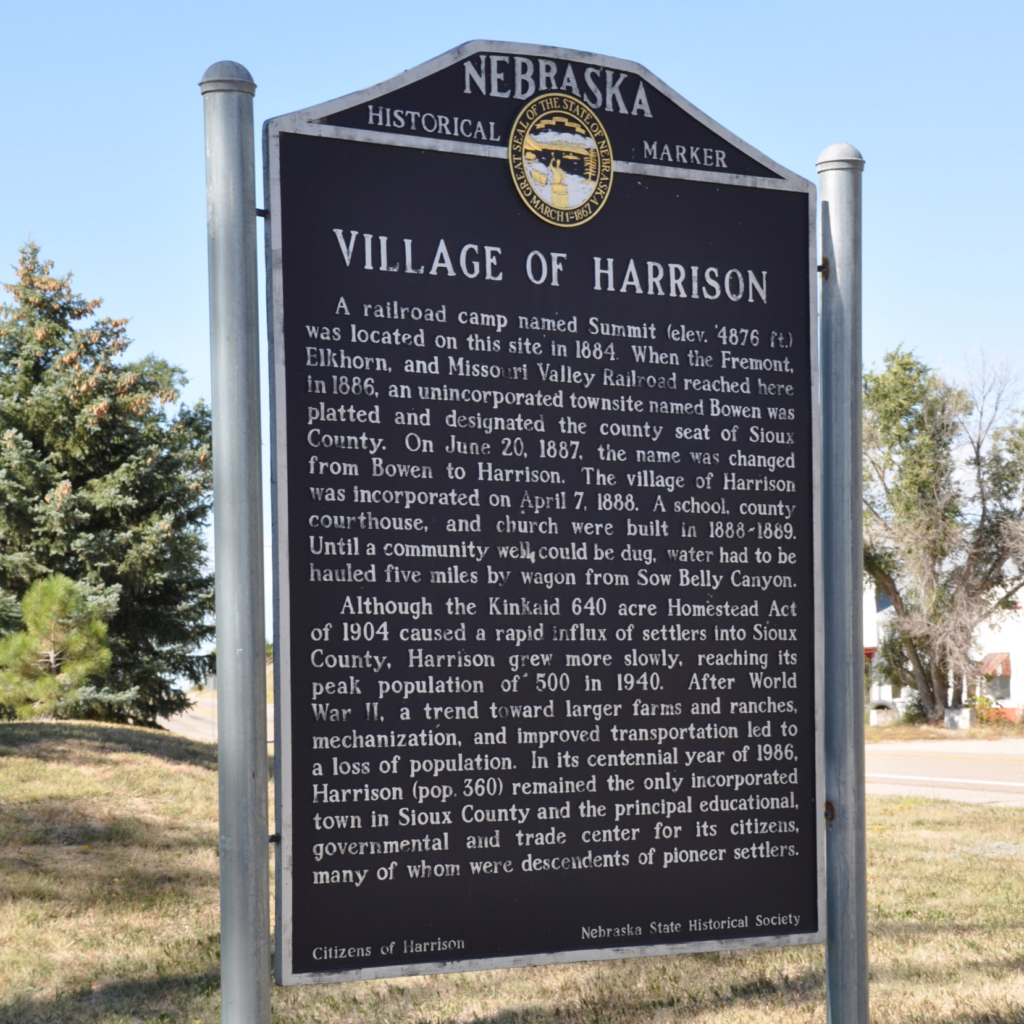Our Historical Markers across Nebraska highlight fascinating moments and places in our state’s past. Today, we’re focusing on the history of the town with the highest elevation in Nebraska. It’s Harrison, Nebraska in Sioux County.

Marker Text
A railroad camp named Summit (elev. 4876 ft.) was located on this site in 1884. When the Fremont, Elkhorn, and Missouri Valley Railroad reached here in 1886, an unincorporated townsite named Bowen was platted and designated the county seat of Sioux County. On June 20, 1887, the name was changed from Bowen to Harrison. The village of Harrison was incorporated on April 7, 1888. A school, county courthouse, and church were built in 1888-1889. Until a community well could be dug, water had to be hauled five miles by wagon from Sow Belly Canyon.
Although the Kinkaid 640 acre Homestead Act of 1904 caused a rapid influx of settlers into Sioux County, Harrison grew more slowly, reaching its peak population of 500 in 1940. After World War II, a trend toward larger farms and ranches, mechanization, and improved transportation led to a loss of population. In its centennial year of 1986, Harrison (pop.360) remained the only incorporated town in Sioux County and the principal educational, governmental and trade center for its citizens, many of whom were descendants of pioneer settlers.
Marker Location
260-410 5th St, Harrison, Sioux County, Nebraska



